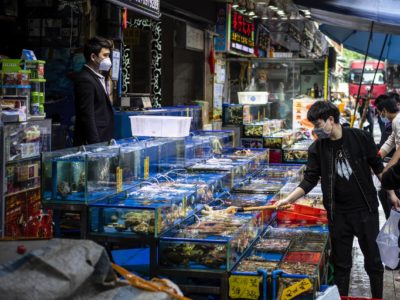


Experts agree it all began in an animal market in China – but there are other threats from the way we live, too
As scientists race to develop a vaccine to help curb the coronavirus in future, others are looking back at how it began, with a view to preventing future outbreaks.
Experts agree that the virus, which has officially led to more than 7,000 deaths worldwide, originated in a market in Wuhan, China, that had kept vast numbers of species crammed together, in busy passageways that often flowed with the blood of animals killed on demand for customers.
No animal smaller than a human was off-limits, apparently. Pangolins, wolf pups, hares, snakes, raccoon dogs, porcupines, badgers, pigs, chickens, fish and peacocks were sold for consumption and the “traditional medicine” trade.
Similar “wet” markets – so called because of the slaughter on site – thrived around China, and certain other regions including Indonesia and Thailand.
These markets put side by side species that would never normally mix in the wild, according to Steve Blake, of the US-based WildAid organisation.
With people being in such close contact as well, such places, where body parts and blood are out in the open, have been described as a perfect breeding ground for the emergence of “zoonotic” diseases – those that jump from animals to humans.
Last month, scientists at South China Agricultural University identified pangolins as a possible coronavirus host. It was suspected the pathogen may have come from bats, which are considered a delicacy, and then been spread to people by the endangered scaly ant-eater.
Hong Kong University virologist professor Leo Poon told CNN: “These viruses can jump from one species to another species, then that species may become an amplifier, which increases the amount of virus in the wet market substantially.”
World Animal Protection says: “Wildlife markets crowded with people and wildlife are a ticking time bomb for deadly epidemics. The animals are poached from the wild or intensively farmed, often placed in squalid, cramped cages, creating a lethal hotbed of disease, as well as causing enormous suffering and cruelty.”
Stay in touch and get the latest WildAid updates.
SIGN UP